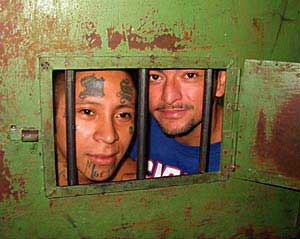Last night, by sheer coincidence, I ended up reading two articles about Pope Francis that made me consider my own feelings toward the new Pope and my relationship with the Catholic Church during the past four years.
In the Salvadoran paper El Faro the writer Ricardo Ribera gives a moving, at times funny, personal account of his strained relationship with the Catholic Church. He muses on the fact that one of his middle names is Francisco and considers the implications of sharing his name with the Pope. Ribera writes that after years of distance from the Catholic Church the Pope's humble ways, his critique of unbridled capitalism, his solidarity with the poor, his message of inclusivity, is slowly working in him to consider the Church in a different light. It is not so bad, even if insignificant in the scope of things, Ribera concludes, to share his middle name with the new Pope.
Writing in the The New Yorker John Carroll's article is not as personal or as humorous as Ribera's, but it gives an in-depth account of Francis' papacy thus far. Carroll describes the subtle and not so subtle ways in which Pope Francis is challenging the ways of the Vatican. On the subtle: shunning the luxury of the Vatican for more practical, and every day, ways of being like wearing regular black shoes instead of the red handmade slip ons Popes have worn or driving a Ford Focus instead of a Mercedes. On the not so subtle: appointing a group of cardinals from all continents to an advisory group instead of relying on the advise of the insular Vatican Curia.
I am not a church going person and struggle with the positions of the Catholic Church with respect to women, abortion and contraceptive use. I became a full catholic as an adult and for a while I attended mass regularly, despite my concerns with the issues mentioned. When it became clear that the Church actively supported the anti-gay marriage Prop 8 initiative in California I stopped going altogether. That things have changed in California and gays can now marry is beside the point. The sour taste has lingered in my mouth.
Yet, since Pope Francis took office, I like Mr. Ribera, have felt the stirrings of the faith. When Pope Francis responded to Antonio Spadaro, on a question about gays with, "Who am I to judge?" I started to pay attention, maybe even to soften my stance vis a vis the Church.
I was taught 30 plus years ago, in the parochial school I attended in El Salvador, that the church is the people. A church without a congregation, no matter how beautiful, is just a building. An empty hull. It is people with their hearts and their spirits that make up the Church. That moment during mass when we open up our hands to say the Lord's Prayer, that sublime moment, when I can feel spirit dancing on my open palms; the energy of the congregation, that is the Church. And because the Church is people - of all backgrounds and sexual orientations - the obligation of the Church must be with its congregants not with itself. I believe Pope Francis is getting at this fact when he exhorts everyone to remember the poor, to honor the plight of immigrants, to remember incarcerated youth and when he says, "Who am I to judge?"
As ambivalent as I am about the Catholic Church, the fact is that it is part of my cultural identity and a vessel of personal memory. Both of my grandmothers were deeply spiritual and religious women. When I enter a Catholic church and kneel in prayer, I kneel alongside my grandmothers. With every bit of a tamal pisque I eat during Holy Week I remember my childhood, my parents, my country. When I enter the church at five in the morning on the Feast Day of the Virgen de Guadalupe with hundreds of others I am bigger than myself; I am filled with deep sympathy and love.
The way is long for the Church to be a truly inclusive body and to tend to the needs of the weakest among us. But it is refreshing to see that finally there is someone at the helm who might understand this. What Pope Francis is doing and saying is hugely important even when imperfect. For me it means that instead of focusing on all the ways in which the Church has wronged and exploited and repressed, I can contemplate the possibility of coming together with others, on seeking common ground, on being close to my departed, and in a way, on being closer to myself.



